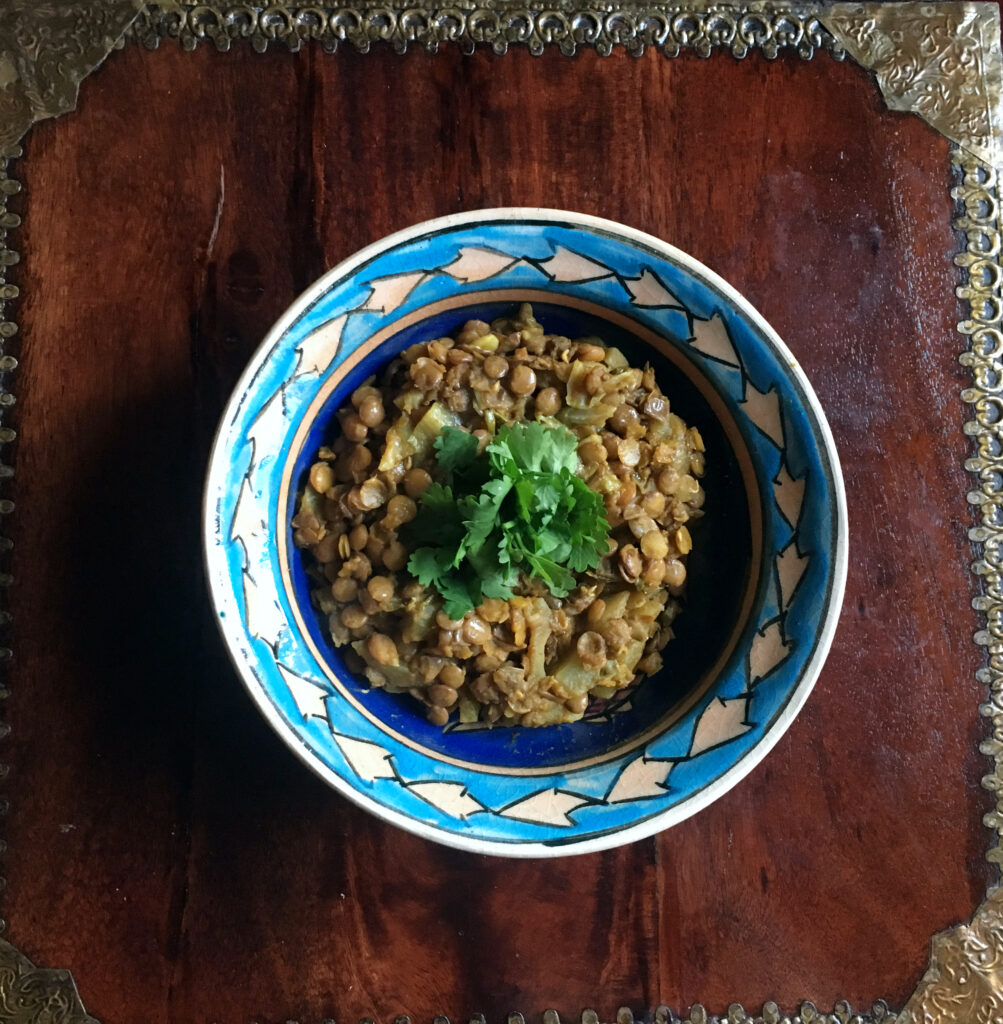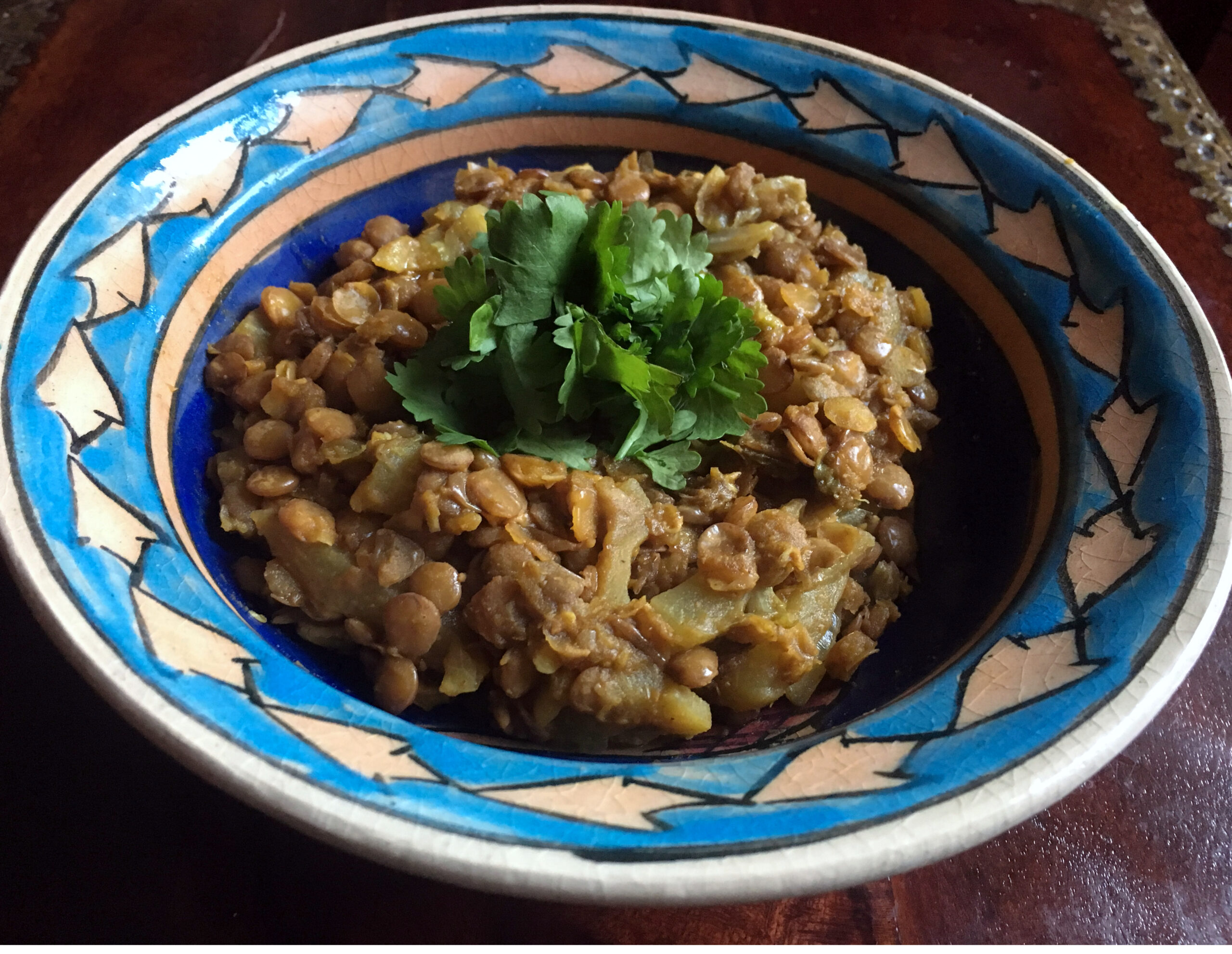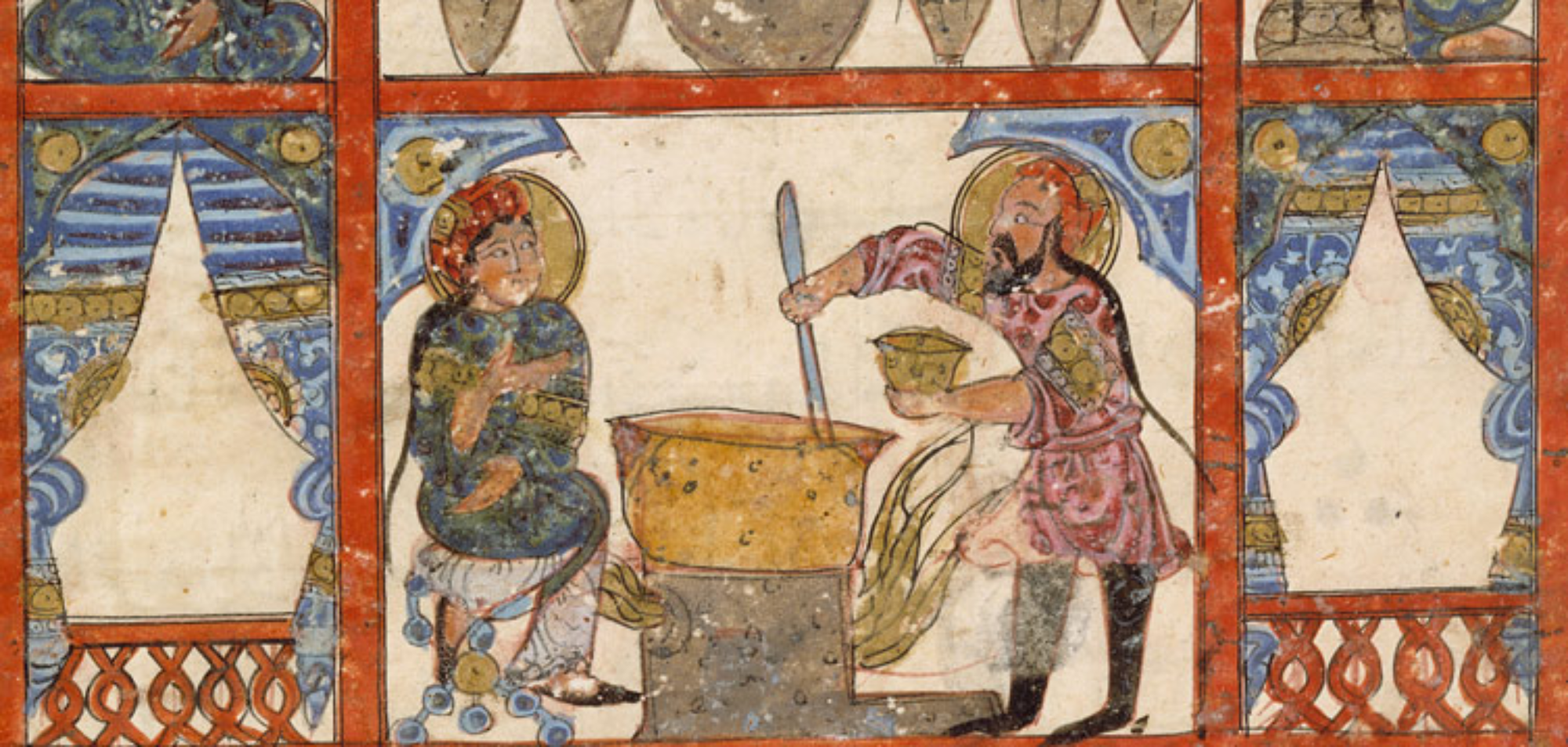The importance of meat in medieaval Arab cuisine was such that vegetarian dishes were known as ‘counterfeit’ (مزوّرات, muzawwarāt) as they were intended to copy meat dishes, in an attempt to make the diner eat them! Non-meat dishes were associated with Christians (during Lent) and the sick. Modern echoes of this can be found in modern Turkish, where vegetarian variants of dishes are kown to be ‘lying’ (yalancı), as in the meatless yalancı tavuk göğsü, the descendant of the medieval muhallabiyya. The counterfeit recipe recreated here is from 13th-century al-Andalus and is allegedly useful against tertian and acute fevers (حُمَّى الغِبّ والحمّايات الحادّة). It is prepared by boiling and washing lentils and then cooking them with some gourd, chard, cucumber, vinegar, coriander, cumin, cassia and saffron. The resultant taste should be subtly sweet and sour, and the dish should be served cold.


